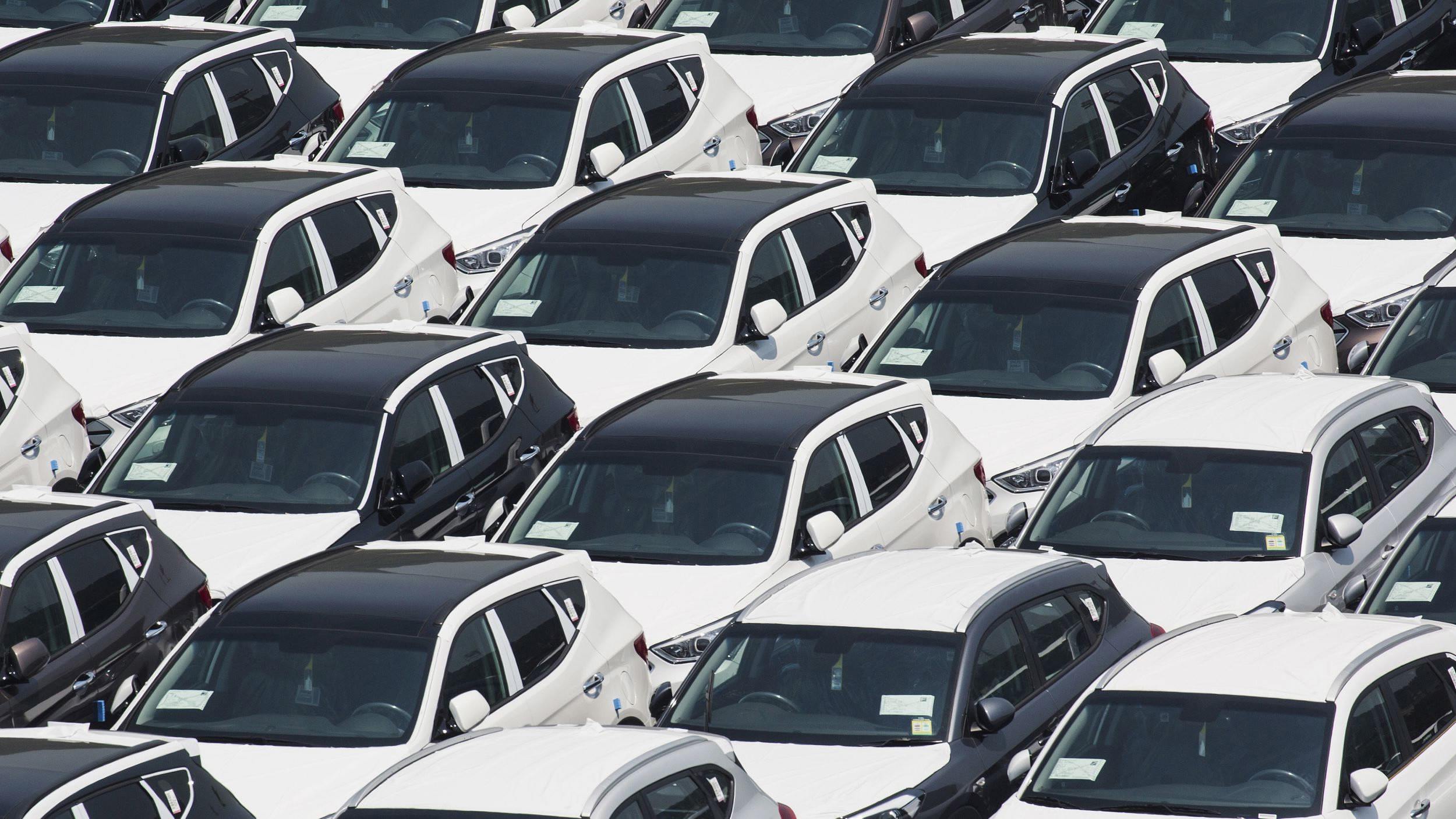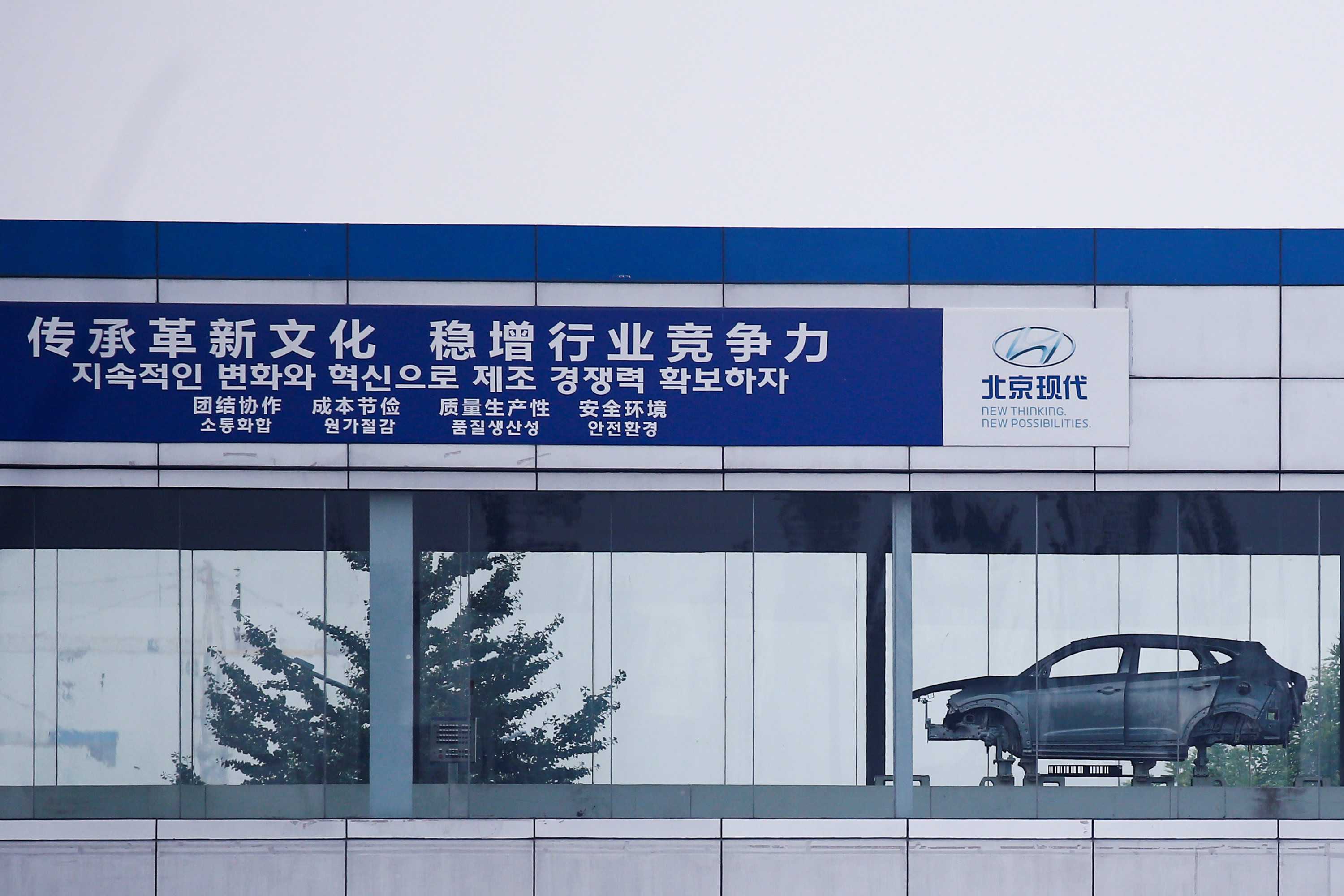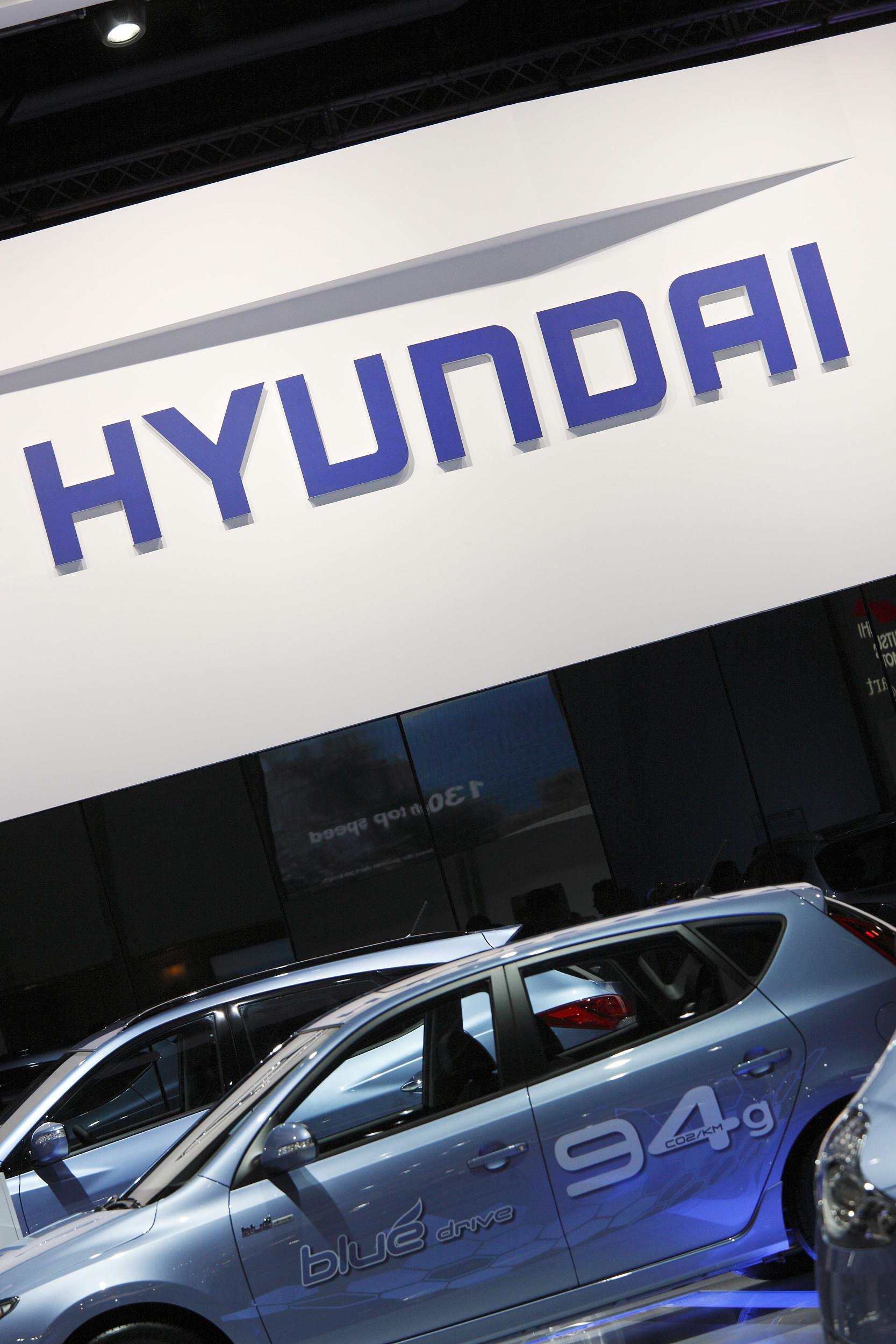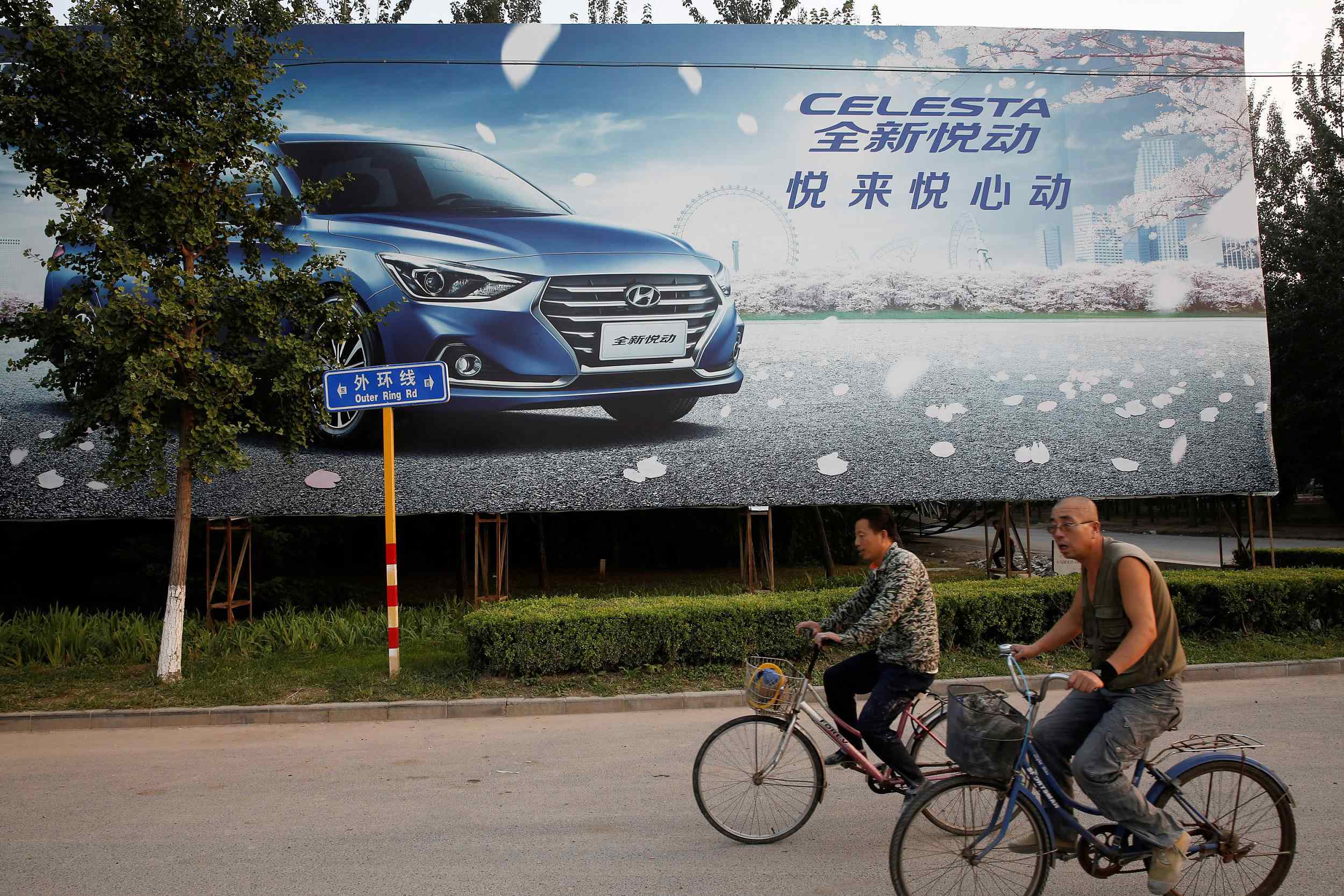
Business
17:45, 27-Sep-2017
Hyundai looks to the future with big data center in Guiyang
by Nicholas Moore

Korean car giant Hyundai Motor has opened its first overseas big data center in the upcoming tech hub of Gui'an New Area, in southwest China’s Guizhou Province, as the company looks to move past a year of poor sales figures and regain its crown as one of China’s bestselling car brands.
Hyundai has already established its own “car cloud” in South Korea, as it looks to utilize self-driving technology and the Internet of Things to build an interconnected network of vehicles of the future.

The body of a Hyundai car moves on a conveyor belt at the Hyundai Motor Co. plant in Beijing. /Reuters Photo
The body of a Hyundai car moves on a conveyor belt at the Hyundai Motor Co. plant in Beijing. /Reuters Photo
According to Xinhua, citing the provincial commerce bureau, the center will provide data support for self-driving cars. The center will also work with China Unicom, one of China's largest telecom operators, to develop Internet-based, intelligent data exchange services tailored to the needs of Chinese customers.
Hyundai in 2016 established its roadmap for the future of car connectivity, with long-term plans that include boosting connectivity between various systems within vehicles, linking those systems to windshields to display information to the driver and eventually to enable high-speed communication between vehicles and their immediate surroundings – an important step in developing driverless vehicles.

VCG Photo
VCG Photo
Hyundai is also looking to use big data to allow remote maintenance of its vehicles via software updates, and is working with companies like Apple and Google to develop smartphone technology within its vehicles, moving on from Bluetooth technology to advances like projecting phone screens onto car windshields.
Hyundai’s first big data center opened in Uiwang, South Korea, in 2013. But the decision to open its first overseas big data center in China – part of a planned future global network of centers around the world – is interesting for several reasons.
Moving beyond THAAD and 2017 struggles
A move to China is in many ways a no-brainer – the country is one of the world leaders in big data technology, and Hyundai’s partnerships with China Unicom as well as Baidu (on in-car navigation and voice recognition technology) put it in good stead to spread its “computer-on-wheels” ethos across its biggest market.
However, Hyundai has struggled in China in 2017, with the effects of South Korea’s decision to deploy the controversial THAAD missile system damaging sales for many Korean companies in the country.
Hyundai sales slumped by 65 percent in the second quarter, with the company forced to cut its targets for the year by almost 25 percent. A factory line halt earlier this month came after all four of Beijing Hyundai’s production lines stopped operations for several days in late August, after suppliers claimed they had not been paid. Bloomberg also cited Hyundai’s “sedan-heavy lineup” in the country and failure to adapt to the popularity of SUVs in the country as another reason for an alarming sales slide.

Men cylce past an advertising billboard for Hyundai cars opposite the plant of
Hyundai Motor Co. in Beijing, China, August 30, 2017. /Reuters Photo
Men cylce past an advertising billboard for Hyundai cars opposite the plant of Hyundai Motor Co. in Beijing, China, August 30, 2017. /Reuters Photo
The move to modernize via big data in China by establishing a center in Gui'an can be seen as a move to regain Hyundai’s previous foothold in the Chinese market – in 2016, it was the third-biggest car brand in the country.
But why Guian?
Hyundai’s decision to establish its first overseas data center in a city that still remains largely unknown outside of China may raise eyebrows – especially given that Guizhou Province remains one of China’s poorest regions.
However, Gui'an New Area is one of China’s most up-and-coming technology hubs, and Hyundai’s move there indicates the Korean car maker knows its market well. Gui'an is being called China’s “Big Data Valley” after attracting companies like Tencent, Baidu and Alibaba to set up R&D facilities, while China Mobile, China Telecom, China Unicom and Huawei all have data centers there.

China's Big Data Valley? Guiyang, Guizhou Province, southwest China. /VCG Photo
China's Big Data Valley? Guiyang, Guizhou Province, southwest China. /VCG Photo
In July, Apple announced that it was investing one billion US dollars into its first China data center, choosing Gui'an as its base. But what is it about Gui'an New Area that is attracting some of the biggest domestic and international companies? According to the State Council earlier this year, the new area has cut red tape to the extent that it only takes five minutes to register a new business, while other business reforms pushed Premier Li Keqiang to say “in Gui'an, I have seen the hope of Guizhou, the hope of west China.”
As far as big data is concerned, local authorities have invested heavily into the sector and other technology. Guizhou may be a poor province, but 29 million of its people are online, representing 80 percent of the entire provincial population. Some 25 million are mobile Internet users, making the province a good base for big data research.
The Milken Institute named Guiyang as its top-performing city in China last year in terms of economic growth, while Guizhou registered the third-fastest GDP growth in 2016, suggesting companies like Hyundai and Apple are ahead of the curve by choosing up-and-coming Gui'an New Area over established, more expensive tech hubs like Shenzhen and Hangzhou.

SITEMAP
Copyright © 2018 CGTN. Beijing ICP prepared NO.16065310-3
Copyright © 2018 CGTN. Beijing ICP prepared NO.16065310-3